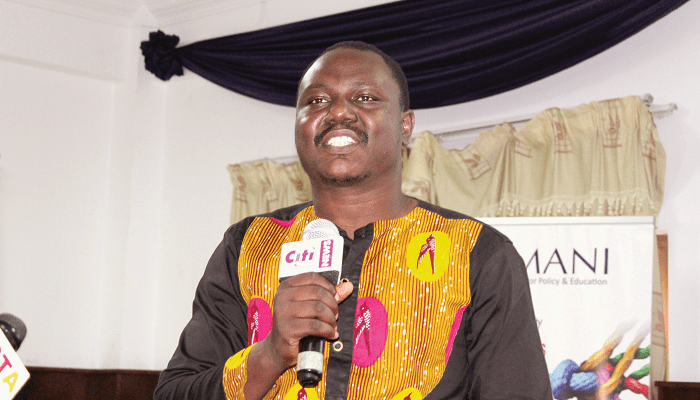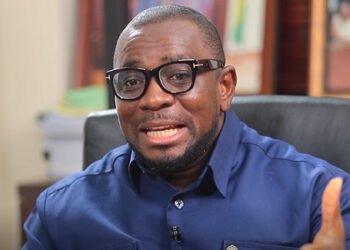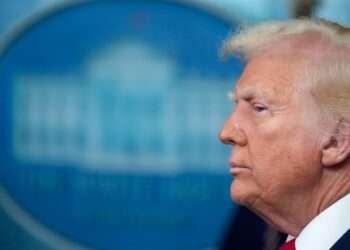The recent controversy surrounding the treatment of students at the University of Professional Studies, Accra (UPSA), has reignited national discourse on student rights and institutional overreach.
Reports of taskforces forcibly removing students from lecture halls due to “indecent dressing” have drawn sharp criticism from legal experts and civil society actors.
According to Prof. Stephen Kwaku Asare, a legal expert and Democracy and Development Fellow at CDD-Ghana, institutions such as UPSA may enforce codes of conduct, including dress codes, but they must do so lawfully.
He emphasized that no university policy can supersede civil or criminal law, and that any physical altercation with students constitutes either assault or battery under the law.
Prof. Asare noted that regardless of a university’s internal rules, any act involving physical force—such as dragging or manhandling students—opens the institution and individual enforcers up to legal liability.
He argued that public universities, in particular, are bound to uphold the rights, dignity, and bodily integrity of students at all times.
“Enforcing a dress code must never come at the expense of students’ dignity, bodily integrity, or constitutional rights. As a public university, UPSA is obligated to ensure that its disciplinary procedures are lawful, proportionate, and non-violent,” he stressed.
Prof. Stephen Kwaku Asare
The subjection of students to forceful removal over alleged dress code violations has prompted many to question the purpose and legality of such disciplinary tactics.
Prof. Asare explained that administrative measures such as verbal warnings, formal notices, disciplinary committee referrals, or even denial of access to lecture rooms are all valid methods. However, resorting to physical force is unacceptable under any circumstances.

He called on UPSA to urgently instruct its taskforce members never to lay hands on students during the enforcement of any policy.
The university, he advised, should reiterate to its staff and enforcement personnel that the use of force is illegal and exposes them to potential lawsuits or criminal charges.
He also urged the institution to reaffirm its commitment to respecting student rights on campus—specifically the right to safety, bodily autonomy, and dignity.
For Prof. Asare, this issue is about more than policy; it speaks to the very heart of Ghana’s democratic and legal principles.
“No rule, no matter how well-intentioned, can override the law,” he concluded, arguing that enforcement should reflect the professionalism that the dress code itself aims to promote.
UPSA Misguided on Discipline, Says IMANI VP
Meanwhile, Selorm Branttie, Vice President of IMANI Africa, also weighed in on the matter. Echoing Prof. Asare’s sentiments, he argued that UPSA’s recent actions represent a significant overreach.
According to Branttie, a university lecture hall is not the same as a corporate office, and enforcing rigid, outdated dress codes does little to prepare students for modern careers.
“Even at NASA, they don’t wear suits and ties to handle very expensive missions,” Branttie pointed out, implying that professional output is not necessarily tied to formal dressing.

He dismissed the notion that academic excellence and employment potential are linked to dressing like office clerks from past eras.
Rather than policing appearances, Branttie called for educational institutions to foster independent thinking and innovation among students.
According to him, targeting students over their choice of clothing—especially in a warm climate—shows a lack of understanding of today’s educational needs.
In his view, such attitudes would lead to mass dismissals if applied in top global tech firms, where relaxed dress codes are the norm.
Branttie warned that Ghana’s obsession with visual conformity risks stifling real progress.
He pointed out that some of the world’s most transformative companies would be disqualified under UPSA’s standards. “Left with that mentality, people at UPSA will have fired and sacked 80% of all workers in the top tech companies in the world.”
“What we should focus more on is creating streams of young students and graduates who think independently and are innovative enough to solve Ghana’s problems as a developing nation with a lopsided population pyramid.”
Selorm Branttie
Instead of coercion and outdated mandates, he advocated for a nurturing academic environment that builds confidence, critical thinking, and creativity.

He criticized the pretense that strict dress codes reflect discipline, noting that uniforms do not necessarily translate to moral or professional integrity.
“Forcing people to wear white shirts and black skirts like they are in secondary school isn’t a sign that they are disciplined,” he argued, pointing to other sectors where uniformed individuals still fall short of ethical standards.
Both Prof. Asare and Branttie highlighted that true discipline and academic growth come from mentorship, respect, and the encouragement of critical thought.
Their comments underline a growing call for reforms in how Ghanaian educational institutions manage student conduct.
As public attention continues to mount, universities across the country may soon be forced to re-evaluate how they balance institutional policies with legal obligations.
For now, the UPSA incident stands as a reminder that upholding student rights is not optional—it is a legal and moral imperative.
READ ALSO: SEC Exposes News GH and Ghana News Over Unlicensed Investment Scams


















